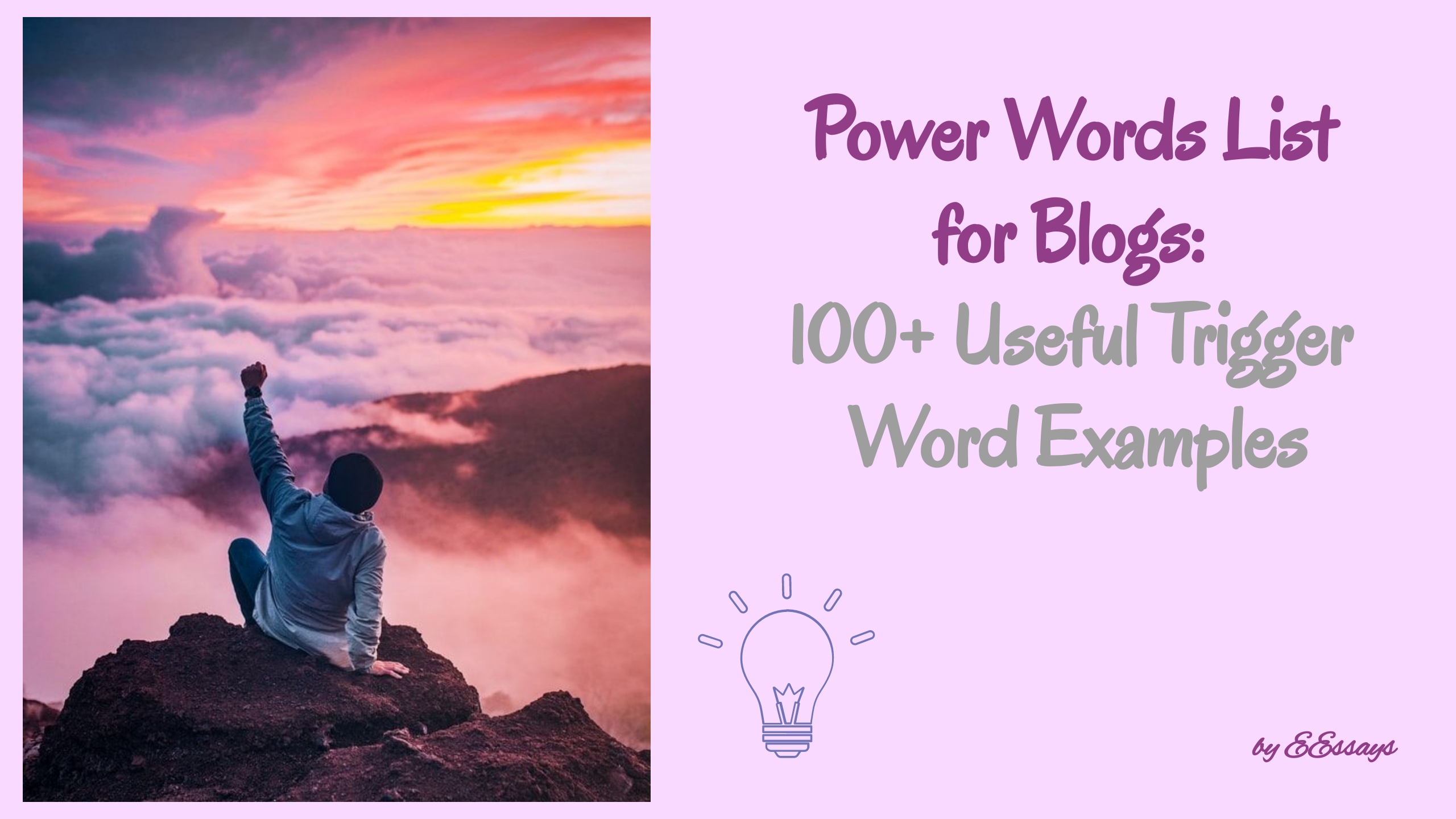It is possible to decipher power words as triggers of emotional and sensory reactions. Such emotions are drivers of reader’s engagement. According to Liebrecht et al. (2019), these trigger words also involve a set of adverbs, serving as language intensifiers and igniting an evaluation response. Furthermore, they are not necessarily positive expressions. Moreover, what researchers say is that negative intensifiers have a stronger impact (Liebrecht et al., 2019). Why? Just because of human nature to be cautious when faced with fears, which are basically negative reactions. However, content marketers often take use of these negative messages. Thus, power words list for blog posts and great content will help to create messages, triggering curiosity, empowerment, excitement, fear, admiration, trust, surprise, intrigue, and encouragement to name but a few. Do you wonder why to use them? Consider the outcomes of better conversion and engagement.

How to Use Powerful Words?
The first and the most important point is to use trigger words in headings and SEO titles.
Email marketing messages is another driver of conversions. So to boost the latter, title messages in emails using intensified language. Specifically, one of the secrets behind converting messages is achieving the wow effect.
Look at the example below from The New York Times. It presents the title of one of the articles:
“We’re frighteningly in the dark about student debt.”
It is possible to see 2 power words used to trigger negative emotions, specifically fear. According to Yuxuan and Bin (2020), such types of words as frighteningly cause value judgement. The result is the reader evaluating the message and the title igniting reader’s emotions and curiosity to know what can cause the situation of being so frighteningly in the dark.
Power Words List
1. The Wow Effect
First of all, to trigger reader’s excitement, there are words with the wow factor (quality or effect):
- Thrilling
- Spell-binding
- Breath-taking
- Catchy
- Attention-grabbing
- Spectacularly
- Absorbingly
- Dramatic
- Hard-hitting
- Mind-bending
- Extraordinarily fantastic
- Dazzling
- Surprising
- Extremely
- Colossal
- Life-changing
- Life hack
- Stunt
- Eye-opening
- Incredibly
- Sparkling
- Gigantic
- Mouth-watering
- Astonishing
- Empowering
- Inriguing
- Inspiring
- Irresistible
- Embarrassing
- Memorable
- Heartbreaking
2. Negative Intensifiers
The point to note is that negative intensifiers can be sometimes used with positive adjectives (for example, terribly important).
Thus, find the list of negative intensifiers below:
- Terribly
- Frighteningly
- Painfully
- Despairingly
- Miserably
- Desperately
- Severely
- Disastrously
- Dangerously
- Insanely
- Awfully
- Deliriously
- Bitterly
- Horribly
- Strangely
- Ridiculously
3. Simple Words with Powerful Effects
- New
- Really
- Quite
- Effortless
- Free
- Easy
- Secret
- Now
- Proven
- Surely
- Absolutely
- Golden
- Inexpensive
- Cheap
- Bonus
- You
- Extra
- Best
- Top
- Top-notch
- Exclusive
- Double
- Fortune
- Reward
- Benefit
- Effective
- Smart
- Expert
- Great
- Because
- Yes
- Verified
- Perfect
- Useful
- Massive
- Huge
- Magic
- Simple
- Latest
- Tricks
4. Persuasive Power Words
- Reliable
- Authoritative
- Trustworthy
- Money-saving
- Research-based
- Evidence-based
- Seriously
- Truly
- Expert
- Powerful
- Strong
- All-inclusive
- Tips
- Prompts
- Hacks
5. Words Driving Curiosity
- Decoding
- Decyphering
- Unlocking
- Configuring
- Fix
- Troubleshooting
- Disclosing
- Uncovering
- Triggering
- Evoking
- Driving
- Revolutionary
- Step-by-Step
- Sensational
- Transforming

Print this power words list, downloading the file below.
Do you use powerful words in blog posts? Leave your feedback in comments and subscribe to get more useful tips.
References
Dynarski, S. (2015). We’re frighteningly in the dark about student debt. The New York Times. https://www.nytimes.com/2015/03/22/upshot/were-frighteningly-in-the-dark-about-student-debt.html
Liebrecht, C., Hustinx, L., & van Mulken, M. (2019). The relative power of negativity: The influence of language intensity on perceived strength. Journal of Language and Social Psychology, 38(2), 170-193. https://doi.org/10.1177%2F0261927X18808562
Yuxuan, C., & Bin, S. (2020). Literature review on negative emotive intensifiers in English. Higher Education of Social Science, 18(2), 55-59. http://flr-journal.org/index.php/hess/article/view/11747/pdf


Leave Your Feedback